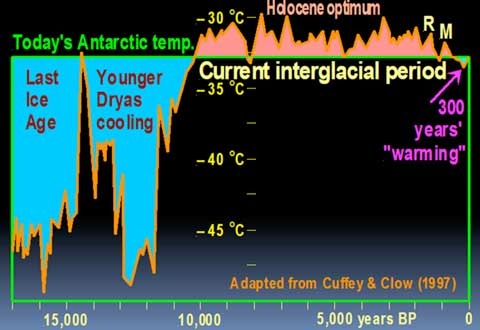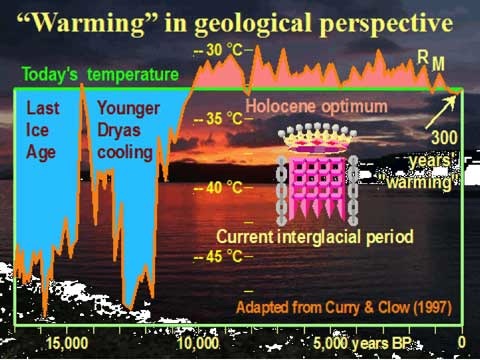 On the one hand, in New York, the Heartland Institute‘s climate crank talking shop, where scientists of the immense probity of Richard Lindzen were happy to share a stage with proven fabricators of data like Christopher Monckton, has drawn to a close. Terry Dunleavy, head honcho of NZ’s climate crank coalition has given his presentation, and no doubt Muriel Newman is happy that her NZ Centre for Policy Research sponsorship of the event has been fruitful. The crank blogosphere has loved the attention, and the great communicator himself (step forward Bob Carter) has been positively chortling about the event in his posts at Quadrant Online.
On the one hand, in New York, the Heartland Institute‘s climate crank talking shop, where scientists of the immense probity of Richard Lindzen were happy to share a stage with proven fabricators of data like Christopher Monckton, has drawn to a close. Terry Dunleavy, head honcho of NZ’s climate crank coalition has given his presentation, and no doubt Muriel Newman is happy that her NZ Centre for Policy Research sponsorship of the event has been fruitful. The crank blogosphere has loved the attention, and the great communicator himself (step forward Bob Carter) has been positively chortling about the event in his posts at Quadrant Online.
On the other hand, a proper conference, Climate Change: Global Risks, Challenges and Decisions is just getting under way in Copenhagen. Real scientists from all over the world, leaders in their fields, are gathering to present the latest research findings. The objective is to provide a comprehensive update to the findings of the IPCC’s 2007 report, so that policymakers can go into the final phase of negotiations for a post-Kyoto deal with a clear picture of what the science is telling us about the climate system. Conference organiser, Prof Katherine Richardson of the University of Copenhagen provides more background in this interview at Nature Reports: Climate Change.
I’ll be covering news from the conference as it emerges, but the big news from day one: expect sea level rise of at least a metre by the end of the century. BBC coverage here, plus TimesOnline, the Herald reprints an Observer preview, New Scientist, and the conference press release for day one.
Two other interesting stories from day one (which I will return to, at some point): the “tipping point” for complete loss of the Greenland ice sheet may be further off than thought, and a French researcher gave a dire warning about permafrost carbon emissions.
[Frankie]





 According to
According to  There’s
There’s